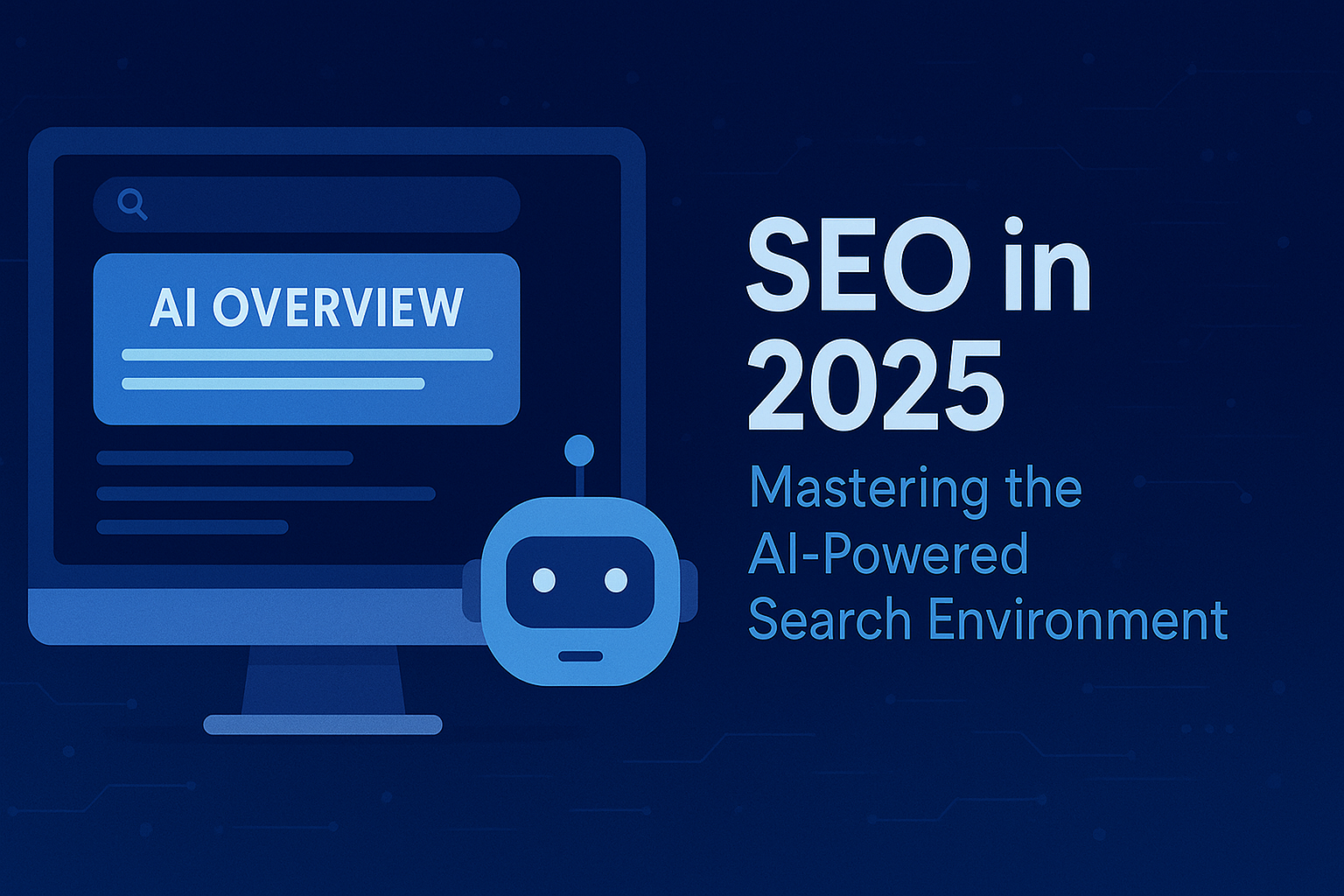Top SEO Updates 2025: How AI Is Changing Search Engine Optimization

-
 Written by
Written byGhouse Basha
-
Category
Search Engine Optimization
-
Date
06/07/2025
SEO in 2025: Mastering the AI-Powered Search Environment
In 2025, the SEO landscape is enduring a transformative shift, primarily driven by advancements in artificial intelligence. Our strategies for maintaining relevance and visibility must evolve in tandem with the evolution of search engines. Let us explore the most significant trends that are currently influencing SEO.
1. Artificial Intelligence Overviews: Revolutionizing Search Engine Results
The manner in which information is presented in search results has been transformed by Google's introduction of AI Overviews (AIOs). Users are directly provided with concise responses on the search page by these AI-generated summaries, which eliminates the necessity of clicking through to individual websites. It is worth noting that the prevalence of AIOs in search queries has increased from 7% in mid-2024 to nearly 20% by November of the same year. An AIO is now present on more than one-third of search engine results pages (SERPs) in industries such as business and technology.
Conclusion: In order to maintain their competitive edge, content creators must concentrate on creating authoritative, high-quality content that AI systems consider worthy of citation. This entails the exhaustive and precise resolution of specific user inquiries.
2. The Emergence of Answer Engines: A Step Beyond Conventional Search
The emergence of answer engines such as Perplexity AI represents a transition from conventional keyword-based searches to conversational, AI-driven queries. Perplexity prioritizes the provision of direct responses, frequently referencing sources, and has a user base of more than 15 million.
Implication: In order to be included in AI-generated responses, it is crucial that SEO strategies are modified to optimize content for these platforms, ensuring that the information is structured and authoritative.
3. Generative Engine Optimization (GEO):
The New Frontier Generative Engine Optimization (GEO) has emerged as a critical strategy for improving visibility in AI-driven search results. In contrast to conventional SEO, which emphasizes keyword rankings, GEO's objective is to optimize content for AI systems such as Google's Gemini and ChatGPT, guaranteeing that these models can effectively retrieve and present the content.
Implication: The probability of being included in AI-generated summaries can be increased by incorporating structured data, explicit metadata, and comprehensive content.
4. Engagement and User Experience (UX) Metrics Assume the lead role:
Google's algorithms are increasingly emphasizing user engagement metrics, including dwell time, click-through rates, and return rates. The importance of a user experience that is both intuitive and fast-loading is at an all-time high.
Implication: Websites must prioritize the rapid and efficient delivery of value, thereby guaranteeing that visitors can easily locate the information they require.
5. E-E-A-T: Highlighting Authenticity and Expertise Revolutionizing Search Engine Results
The concept of E-E-A-T—Experience, Expertise, Authoritativeness, and Trustworthiness—remains a fundamental component of SEO. In an era where AI-generated content is prevalent, content that reflects genuine expertise and firsthand experience is favored.
Conclusion: The credibility of content and its search rankings can be improved by incorporating personal insights, case studies, and expert opinions.
6. The Emergence of Answer Engine Optimization (AEO)
Answer Engine Optimization (AEO) is the process of customizing content to be effectively interpreted and presented by AI-driven answer engines. This entails the organization of content to provide plain and succinct responses to specific inquiries, thereby enhancing the likelihood of being included in AI responses.
Implication: Content creators should anticipate user inquiries and organize their content to offer direct, authoritative responses.
7. Artificial Intelligence Tools: Improving Content Strategy and Creation
AI tools are increasingly essential for content creation, as they facilitate a variety of duties, including drafting and editing, as well as researching topics. Nevertheless, the primary focus is on the use of AI to complement human creativity rather than to supplant it.
Implication: By utilizing AI to optimize efficiency while preserving a human touch, content is guaranteed to be both engaging and authentic.
8. Zero-Click Searches: Adjusting to Changing User Behavior
The prevalence of AI-generated responses has resulted in an increase in zero-click queries, which enable users to access the information they require without having to navigate to a website.
Conclusion: Structured data and compelling excerpts are among the innovative methods that brands must employ to captivate user attention within the search results.
In summary, adopting the AI-driven SEO landscape The SEO landscape is being transformed by the integration of AI into search engines. Adaptability, authenticity, and a user-centric approach are essential components of success in this new era. Content creators and marketers can continue to prosper in a digital world that is increasingly propelled by AI by comprehending and adopting these changes. By consistently adapting to these evolving trends and utilizing AI as a tool to enhance, not replace, human creativity and expertise, it is possible to maintain a competitive edge in the SEO game.

